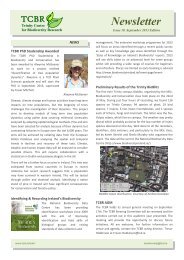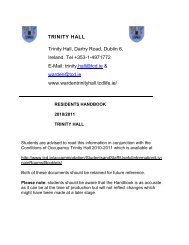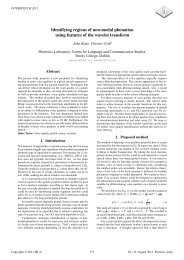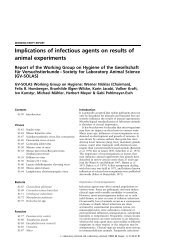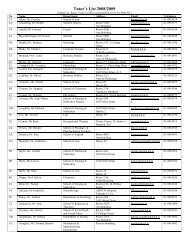Globalization and Inequality - Trinity College Dublin
Globalization and Inequality - Trinity College Dublin
Globalization and Inequality - Trinity College Dublin
Create successful ePaper yourself
Turn your PDF publications into a flip-book with our unique Google optimized e-Paper software.
especially since Slaughter (2001) finds no relationship between trade liberalization <strong>and</strong> convergence,<br />
using a more sophisticated difference-in-differences analysis. 10<br />
Moreover, the dimension of globalization which had the greatest impact on convergence<br />
one hundred years ago was not trade, but labour flows; political reality suggests that mass<br />
intercontinental migration will not be allowed to play the same role in the future. Capital flows <strong>and</strong><br />
technological transfers, operating through trade or FDI (e.g. Coe <strong>and</strong> Helpman 1995; Keller 2001),<br />
will have to take up the slack. Work by Alan Taylor on Latin America (e.g. Taylor 2000) suggests<br />
that capital flows can have a major impact on peripheral economies, where policy allows these to<br />
take place; unfortunately, late 20 th century capital markets do not seem to have done as good a job<br />
at channelling savings towards DCs as their late 19 th century counterparts. Ensuring that DCs<br />
benefit from these flows will be crucial in ensuring convergence in the future.<br />
Conclusion<br />
What have we learned thus far?<br />
First, globalization can have an important impact on within-country income distribution, <strong>and</strong><br />
did during the late 19 th century. However, for the reasons outlined at the start of the paper, the<br />
relationship between globalization <strong>and</strong> inequality will vary depending on the country being<br />
considered, the dimension of globalization involved, <strong>and</strong> the distribution of endowments. The late<br />
19 th century experience illustrates these points very clearly, <strong>and</strong> there is no reason to suppose that<br />
things are different in the 20 th century. It follows that searching for average relationships between<br />
10<br />
Furthermore, Rodríguez <strong>and</strong> Rodrik (2001) have cast doubt on the Sachs-Warner<br />
dummy variable; while it is always possible that countries which pursued open policies shared some<br />
other characteristic which made them more likely to converge on the core.<br />
32



